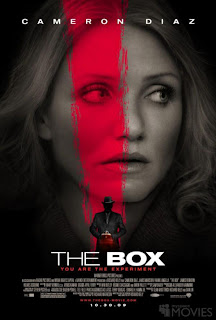
'A Christmas Carol'
Review: 4/5
Charles Dickens' classic tale is familiar to anyone who's been witness to countless sitcom and filmic adaptations. Themes of greed, generosity, compassion, and humanity permeate the adage rendering it a universal account of man's deepest and most potent tendencies toward materialism and warns of the remorse initiated by such acquisitive inclinations. That a modern, cinematic telling of 'A Christmas Carol' may seem to be a bit of a superficial undertaking could not be more amiss. The world today stands on the brink of chaos triggered precisely by the fondness for monetary gluttony that Dickens' tale distinctly foretells, and director Robert Zemeckis acknowledges this reality with a visually untamed jolt of 3D fascination, executed with a virtuoso knack for such a groundbreaking technology and a kind of innate aptitude for infusing charm and benevolence into the nucleus of his films' sincere spirit. His version of 'A Christmas Carol' is as true to his voice as any film he's directed, and it boasts not only a thrilling ride through a harsh wintry landscape, but an incredible performance from Jim Carrey as the universally detested Ebenezer Scrooge.
Everyone knows the story. A greedy man is haunted by three ghosts, and offered an introspective evaluation of his life's choices. You know how the story turns out. But that's not the point here. This contemporary remake of such an eternal narrative is timely both technologically and culturally. Never has a 3D film been carried out with such arduous devotion to precision. The camera soars eagerly through Scrooge's past, ducking underneath oak trees, and darting toward and through the starry night sky. A brilliant opening sequence has the spectator dodging Christmas reefs and chestnuts on a busy avenue corner only to swing inside Scrooge's office and land gently on a medium shot of the old hag scribbling away on Christmas Eve, and ignoring his nephew's request for him to join his family for Christmas dinner. Another sequence, featured in the film's trailer, has Scrooge gripping tightly to a brown top and flying, literally, in front of full moon. It's an immediately classic scene that will be remembered for years to come.
Culturally, I cannot stress the relevance of this film. It pleas sincerely for humanity while vehemently renouncing greed and maliciousness. In a country inundated by two partisan media outlets, each verbally assaulting one another in the guise of patriotism, there is not a better cinematic reminder that we are, all of us, easily susceptible to one of the greatest sins known to man, and that we can conquer this propensity with personal reflection, and a firm belief in hope.


